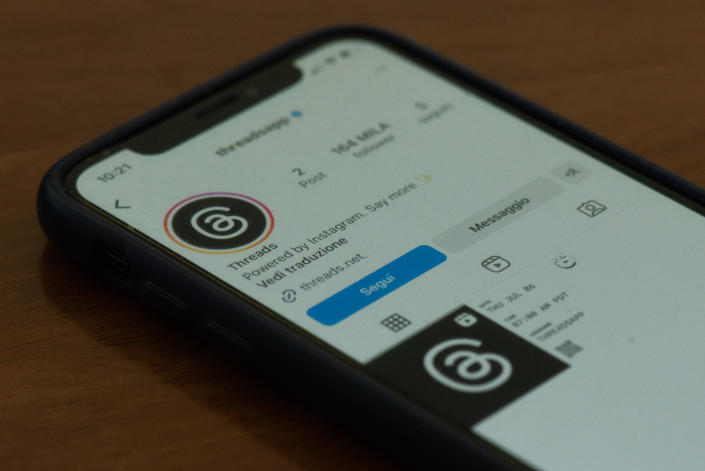Threads, the Twitter rival launched by Meta, has been gaining an astonishing number of users, with an impressive 10 million signups within a mere seven hours, as revealed by Mark Zuckerberg, co-founder and CEO of Meta. However, this highly-anticipated new service, which requires an Instagram account for onboarding, comes with an intriguing condition: If users wish to delete their Threads account, they must also delete their linked Instagram account.
According to Meta’s “Supplemental Privacy Policy,” users can deactivate their Threads profile anytime. However, the Threads profile can only be deleted by deleting the associated Instagram account.
Meta explains on their policy page that this stipulation is because a Threads profile is an integral part of the user’s Instagram account. This discovery of the policy has surprised many users, raising questions and sparking discussions about the interconnectivity between the two platforms.
Meta elaborates on their policy page, explaining that the Threads profile is integral to a user’s Instagram account. This interdependency has surprised many users, as they had not anticipated such a tightly integrated relationship between the two platforms.
Strategic Vision and Privacy Concerns of Meta: The Interplay between Threads and Instagram
The rapid growth of Threads, coupled with the necessity of an Instagram account for its utilization, has raised questions about Meta’s strategic vision for its social media ecosystem. Some speculate that this move aims to boost engagement and user retention across Meta’s platforms, while others express concerns about the potential impact on user privacy and control over personal data.
As the news of this stipulation spreads, discussions have ignited among users, industry experts, and privacy advocates. The interplay between Threads and Instagram and the implications for users seeking to disengage from either platform continue to fuel curiosity and debate in the ever-evolving landscape of social media.

Threads, a text-based conversation app, has emerged as a superior alternative to Twitter, owned by Elon Musk. Instagram, the popular photo-sharing platform with over 2 billion users, introduced Threads on Wednesday, making it available to users in more than 100 countries. Among the growing list of Twitter competitors, Threads is the most desirable option.
In a Threads post, Mark Zuckerberg, the founder of Instagram, shared his vision for the new app, expressing his belief that there should be a public conversations platform with over 1 billion users. While Twitter had the opportunity to achieve this, Zuckerberg feels they haven’t entirely succeeded, and he hopes Threads will fill that gap.
Alternative Social Media Platforms Gaining Momentum
Zuckerberg also revealed that Threads garnered an impressive 10 million signups within just seven hours. He shared an emoji indicating his astonishment at the overwhelming reception. This rapid growth has made Threads the fastest-growing consumer offering in recent times.
Several prominent brands, including Netflix, Amazon, NFL, and Pepsi, have supported Threads by joining the app. However, some significant names such as Google, Apple, Goldman Sachs, Morgan Stanley, and Disney have yet to appear, at least as of publication.
Threads have captured the collective imagination of social media enthusiasts worldwide. Heralded as the high-profile alternative to the renowned Twitter, this intriguing platform has swiftly become the talk of the digital town. Its recent introduction on Instagram, the beloved photo-sharing platform boasting an impressive user base exceeding 2 billion, has ignited a wave of excitement among users in over 100 countries. Threads have emerged as the crown jewel in this bustling realm of Twitter rivals, enticing users with their unique and alluring features.
With its minimalist and user-friendly design, Threads offers a refreshing departure from the traditional social media experience. It fosters intimate and engaging conversations, focusing on the power of textual exchanges. Providing a dedicated public discourse space aims to redefine how we connect and communicate online.











